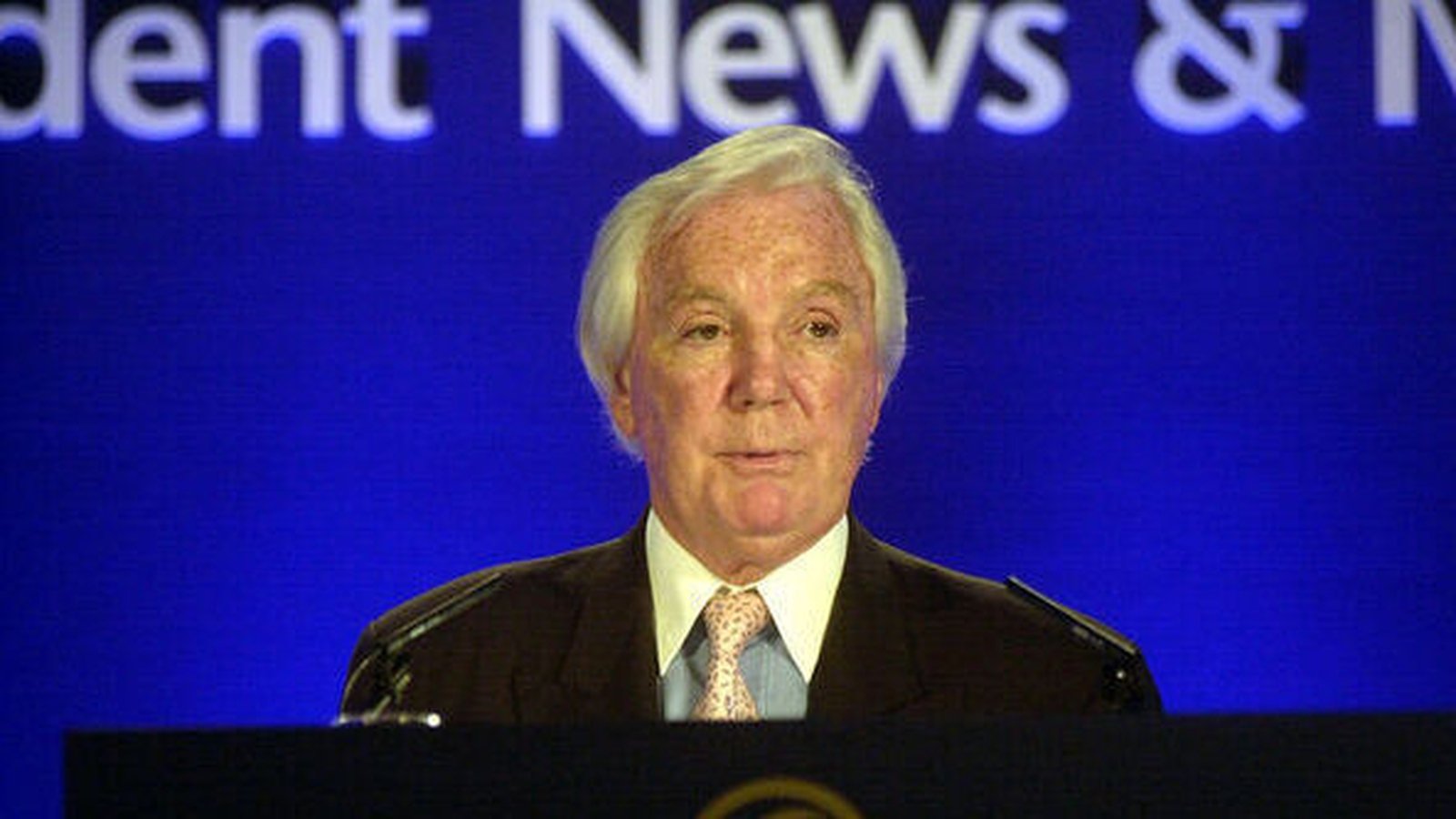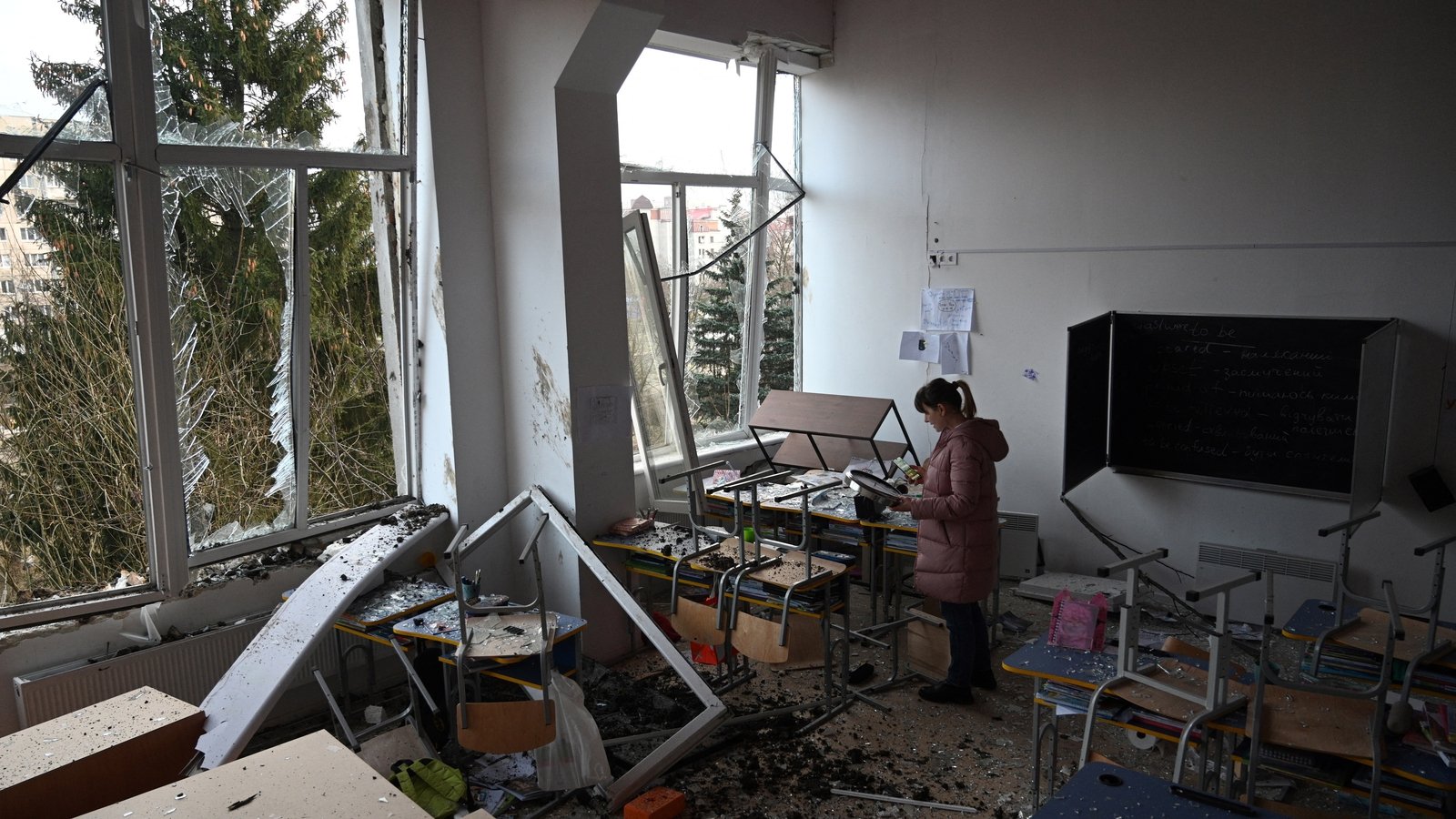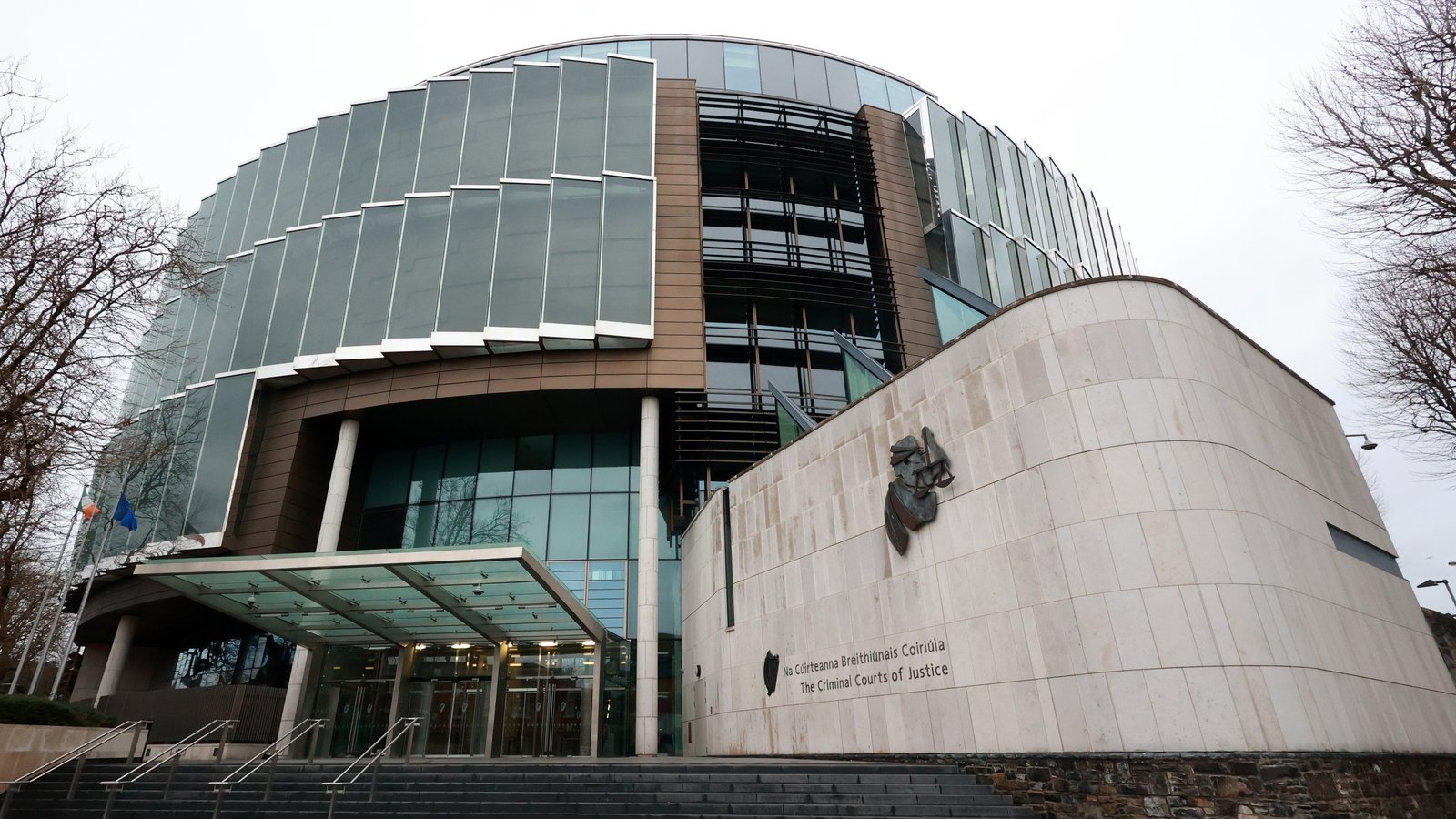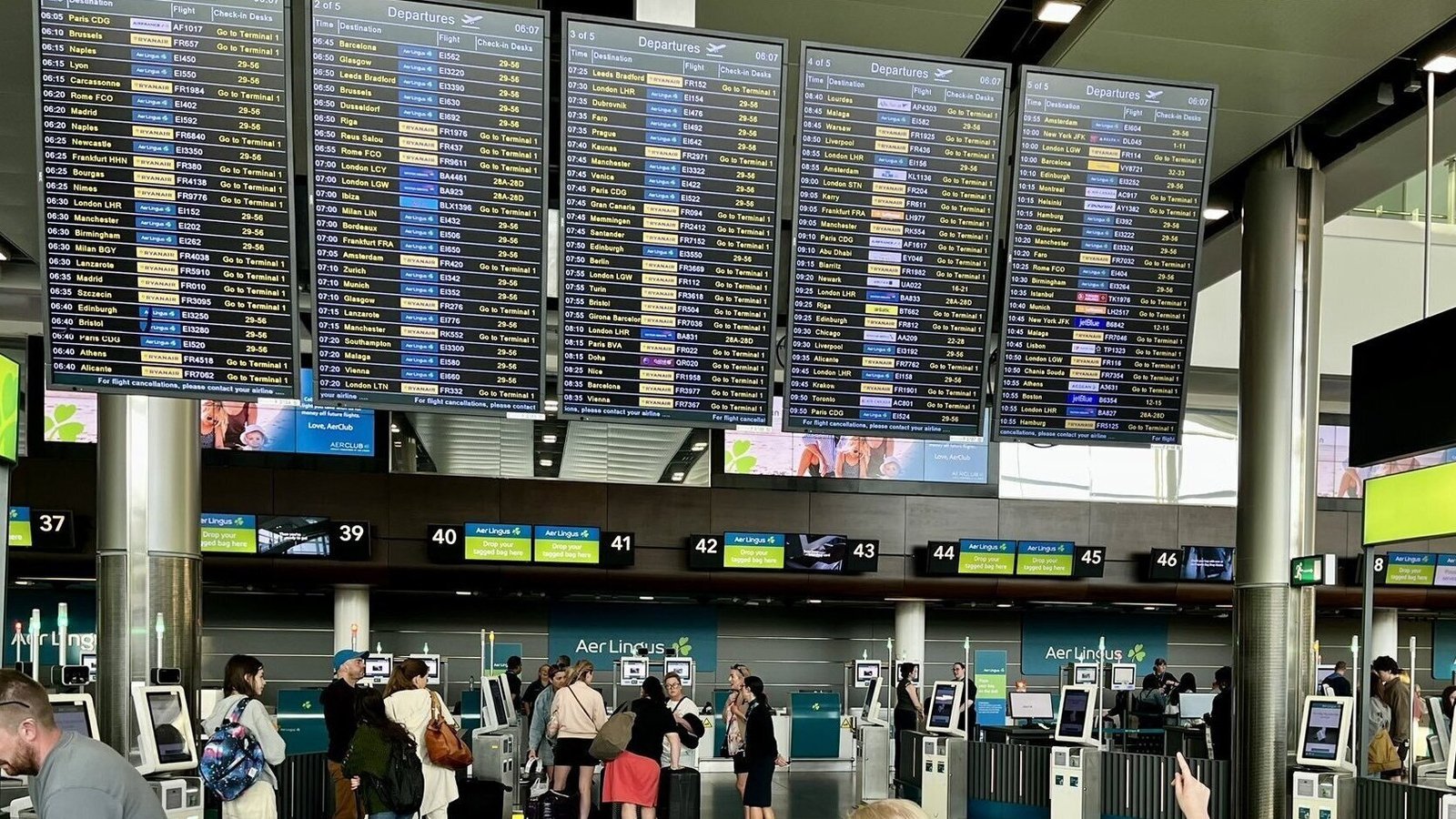US pressure to change Israel’s Gaza campaign off the boil
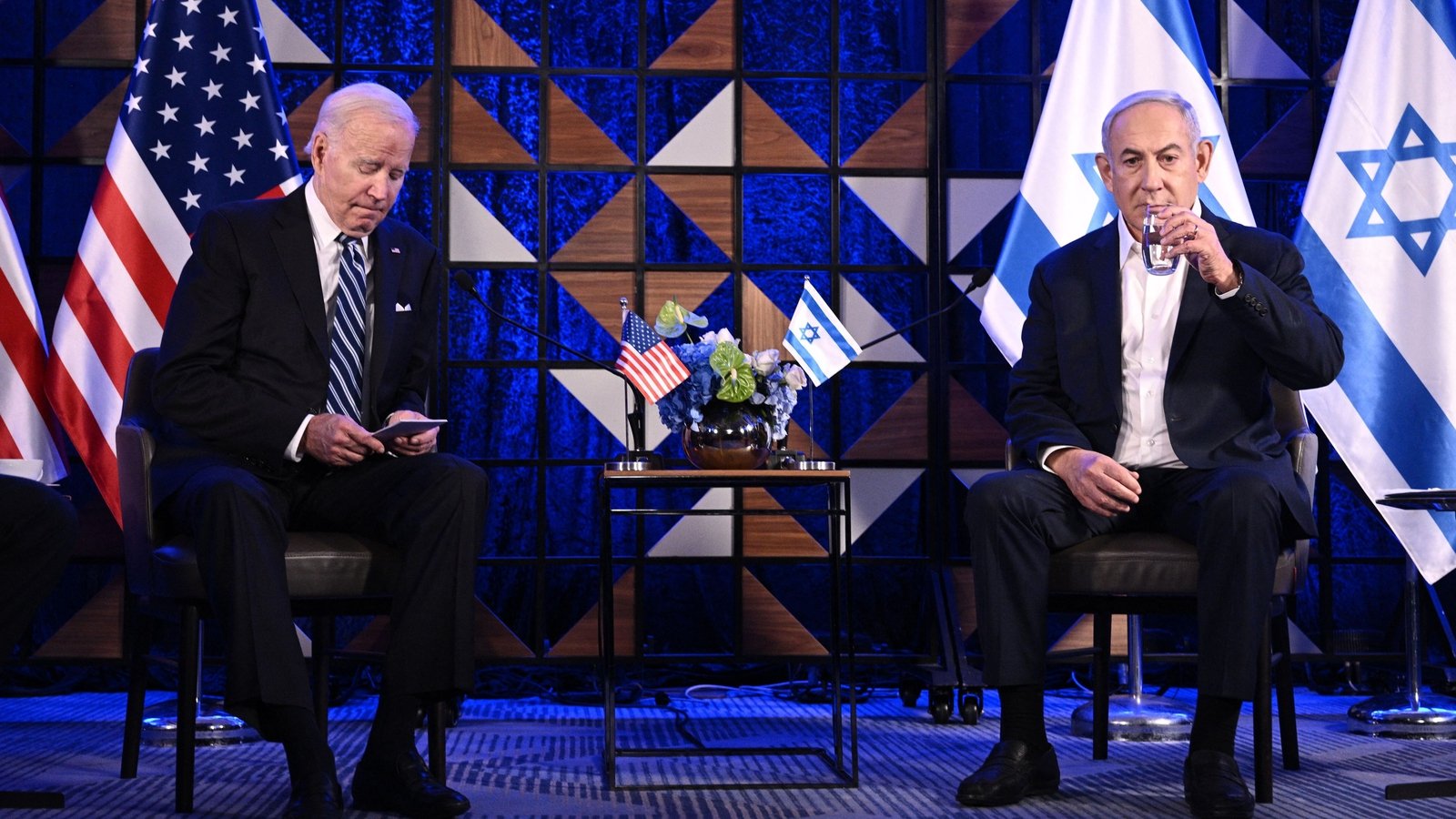
A week that began with the United States exerting massive pressure on Israel’s government, pressure that led to visible cracks in the Israeli cabinet, ended with an invitation to Prime Minister Benjamin Netanyahu to address a joint session of Congress.
A week ago, Mr Netanyahu was under so much pressure from the Americans that he decided to appeal directly to the American people, arranging a number of high-profile television interviews to set out his view of the situation – something he has not done in his own country, for his own people.
Over the weekend, Mr Netanyahu’s policy for publicity was rejected by two key players – Defence Minister Yoav Gallant and opposition leader Benny Gantz, who is a member of the war cabinet and who is also seen as the most likely winner of the next Israeli general election.
Mr Gantz, in particular, has been courted by the US administration, which goes out of its way to keep him in the loop especially when there are top level visitors like Secretary of State Anthony Blinken or national security advisor Jake Sullivan in town.
But by last Monday, the Israeli cabinet was newly re-united and US President Joe Biden was making even stronger commitments to protecting Israel, pledging whatever materiel Israel needed to defend itself – just weeks after blocking delivery of large bombs to the Israeli Airforce.
Months of US pressure, exerted behind the scenes, to get Israel to change course in its Gaza military campaign was coming to the boil seven days ago.
Now it’s off the boil.
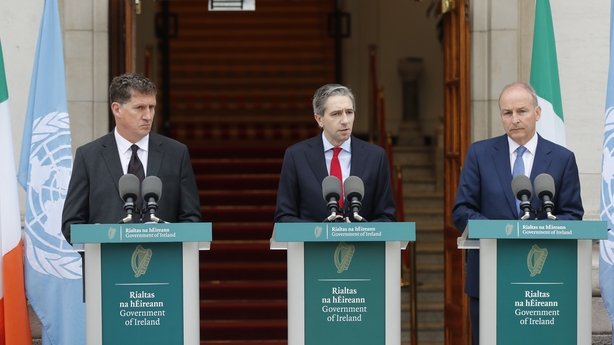
The policy of the Biden administration has suffered the reverse, caused by the International Criminal Court’s (ICC) chief prosecutor, and his panel of advisors.
It was certainly not caused by Ireland’s recognition of the State of Palestine.
While not quite a “meh!” moment in Washington, the ripple in the pond from recognition from Norway, Spain and Ireland was but a gentle one and certainly nothing like the big waves caused by the ICC’s rock, which came crashing in out of nowhere.
By contrast, the diplomatic recognition of Palestinian statehood by the three European countries was well flagged in advance.
Diplomats had prepared the path, talking to key players in the Biden administration and on the hill.
The timetable was made public well in advance. There were no surprises.
Resistance to the idea was mild enough – a disagreement over timing and tactics, not the strategic end.
The Americans, after all, are believers in a two-state solution: a state of Israel and a state of Palestine, living side-by-side in peace and security.
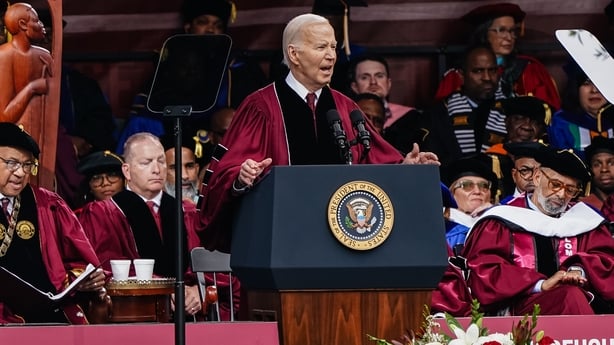
In a graduation address to Morehouse College in the US state of Georgia last Sunday, Mr Biden said: “I’m also working around the clock for more than just one ceasefire. I’m working to bring the region together.
“I’m working to build a lasting, durable peace because the question is, as you see what’s going on in Israel today: What after? What after Hamas? What happens then? What happens in Gaza? What rights do the Palestinian people have? I’m working to make sure we finally get a two-state solution.
“The only solution is for two people to live in peace, security, and dignity.”
Morehouse College is a historically black university and black voters have shown a significant drop in support for Mr Biden over his Middle East policy.
It has prompted cynics to say Mr Biden’s two-state policy is about Michigan and Wisconsin, two must win states in the election. One state with a wafer-thin majority from 2020, the other with America’s biggest concentration of Arab Americans, which are his main concern.
But the Middle East is a real policy priority for all post World War II presidents. It’s eating into Mr Biden’s campaigning time in much the same way that several criminal and civil trials are eating into Donald Trump’s time.
Besides, the recent vote of the UN General Assembly in favour of Palestinian membership had shown where the preponderance of world opinion lay.
That’s why national security advisor Jake Sullivan said it was up to individual countries to make their own decisions on recognition of a Palestinian state, adding that “president Biden believes that a two-state solution that guarantees Israel’s security and also a future of dignity and security for the Palestinian people is the best way to bring about long-term security and stability for everyone in the region.
“President Biden … has been equally emphatic on the record that that two-state solution should be brought about through direct negotiations through the parties, not for unilateral recognition.”
Another wave from the ICC’s rock-in-the-pond washed into the US-Saudi diplomatic track.
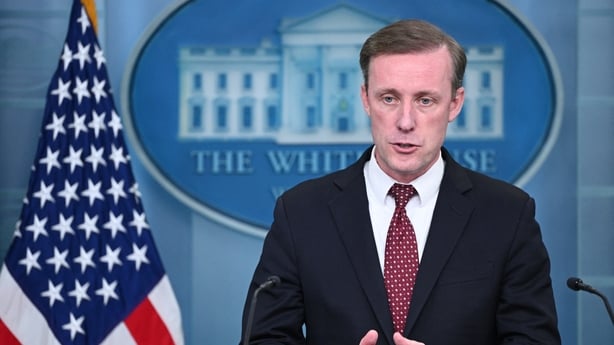
Last weekend, Mr Sullivan was in Dammam, Saudi Arabia, meeting Crown Prince Mohammed bin Salman to encourage forward momentum in a key US diplomatic objective: a normalisation of relations between Saudi Arabia and Israel.
This is a policy the Trump administration also worked diligently on.
The prize is a big one.
A realignment in the Middle East that would see Saudi Arabia normalise relations with Israel, as Egypt has done, and if the two big Arab powers have normal relations with Israel, it would make it easier for other Arab states and states with large Muslim populations do the same.
The win for Saudi Arabia is a bilateral security treaty with the United States that is particularly relevant in the case of its chief regional rival Iran, which supports Hamas, Hezbollah in Lebanon and the Houthis in Yemen.
It was that part of the bargain that Mr Sullivan was in Saudi Arabia for and he reported back to Washington that discussions on a security agreement are close to agreement.
But the Saudi’s also have demands.
One of them is an end to the fighting in Gaza, while the other is a clear path to Palestinian statehood.
Arab public opinion will not settle for less, and recognition of Israel is part of the price for involving Arab powers in the post-war security of Gaza, the West Bank and Israel itself.
This is part of the “Day After” planning that the Americans have been in open, public disagreement with the Israelis over since late December.
What is the plan for dealing with Gaza’s myriad of problems a day after the fighting ends? The Americans want to know, believing that without a clear plan for the day after, then the fighting is aimless. Destroy Hamas, yes. But then what?
The Saudi demands for a ceasefire and path to statehood do not conflict with American aims, but delivering on them is difficult which is why there was so much annoyance in Washington with the International Criminal Court’s indictment and its role in easing the pressure on Mr Netanyahu.

Both Mr Gantz and Mr Gallant spoke out last week in favour of having a “Day After” plan, criticising Mr Netanyahu for not having one.
Last week, Mr Gantz, a former military general, denounced the lack of a post-war objective, issuing a six-point ultimatum to the prime minster.
It included the creation of “an international civilian governance mechanism for Gaza, including American, European, Arab and Palestinian elements – which will also serve as a basis for a future alternative that is not Hamas and is not Palestinian Authority President Abbas.”
He set 8 June as the date on which he will pull his party out of the national unity government and return to opposition, if there is not a change of course.
Several days earlier, Mr Gallant caused ructions in Israel by becoming the first cabinet minister from Mr Netanyahu’s own Likud Party to break with the prime minister in public.
He also called for urgent planning for a post-Hamas alternative. According to the Times of Israel, he said: “The end of the military campaign must come together with political action. The ‘Day after Hamas’ will only be achieved with Palestinian entities taking control of Gaza, accompanied by international actors, establishing a governing alternative to Hamas’s rule.
“This, above all, is an interest of the State of Israel.”
But by Monday night, the beginnings of a revolt were squashed by the ICC, Mr Gallant among the five indicted.
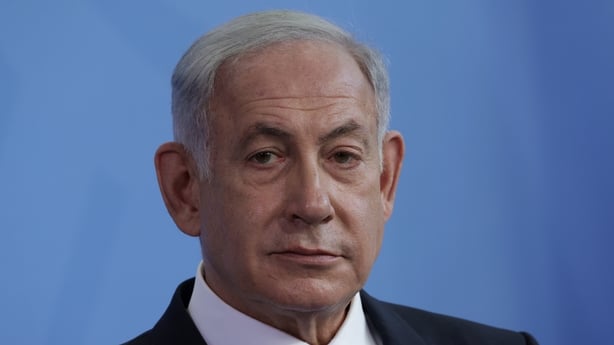
He and Mr Gantz were forced back into the circle of wagons. The Americans too were forced to relinquish their grip on Mr Netanyahu’s throat.
That tightening grip had led to Mr Netanyahu doing a series of television interviews with US broadcasters to set out his stall on Gaza.
In one of them, for the business news channel CNBC – ten days ago and before the Gantz/Gallant remarks, the ICC ruling and the Irish/Spanish/Norwegian recognition of Palestinian state – Mr Netanyahu outliend his opposition to the two-state solution, advocating instead for a sort of home rule under Israeli security supervision.
He said: “The two-state solution that people talk about is basically the greatest reward for the terrorism that you can imagine, 80% of Palestinians in Gaza, and in Judea, Samaria, and the West Bank support the savagery.
“Giving them a state would do two things: One, it would be a tremendous reward (for)… those people who committed the worst massacre against the Jewish people since the Holocaust on a single day.
“And secondly, it would be a state that would be immediately taken over by Hamas and Iran.
“I would argue that if we defeat Hamas, we should strive for something that I’ve long believed we can do in the Middle East and that is the Palestinians have all the powers that they need to govern themselves, and none of the powers that could threaten Israel’s survival.”
He said this entailed leaving the “military responsibility in the Palestinian areas adjacent to Israel” to Israel.
“Otherwise, Iran comes back and, you know, we left Lebanon, Iran came in with Hezbollah. We left Gaza, Iran came in with Hamas and Islamic Jihad,” Mr Netanyahu said.
“If we were to do that a third time, the same thing would happen. So that’s not good for the Palestinians, it’s not good for Israel. It’s not good for peace. It’s bad for the world. It’s not good for America,” he added.
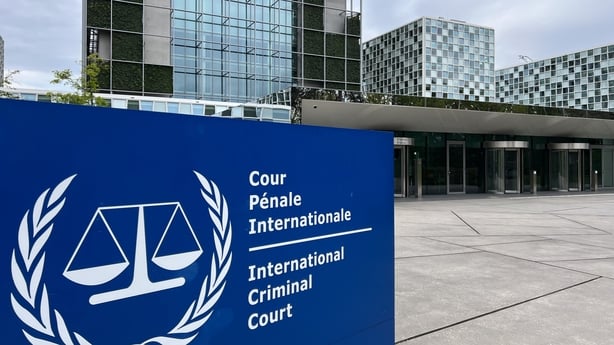
But by early Monday morning, Mr Netanyahu was facing a cabinet revolt at home, US pressure that forced him to take his arguments directly to the American people and bypass the government, US diplomacy in the wider Middle East that could pull in Arab support and recast the security structure of the entire region and further isolate Iran which had just lost its president in a helicopter crash.
Then, the International Criminal Court indicted Mr Netanyahu, Mr Gallant and three Hamas leaders.
There was outrage on Capitol Hill, particularly over the seeming equivalence of treatment accorded to the democratically elected government of a very close US ally and Hamas, which is none of those things.
Some viewed it as a psychological boost to Hamas, a sign that the longer it hangs in there, the more chance it has of seeing more support for its position. That would mean no incentive to free the hostages it is still holding, no incentive to agree a ceasefire, but every incentive to keep fighting no matter what the humanitarian impact on civilians in Gaza.
But there was also anger over the disruptive impact the ruling has had on the Biden administration’s diplomatic efforts, particularly the pressure it has been applying largely behind the scenes on Mr Netanyahu’s government.
Back in March, Democratic Senator Chuck Schumer, the majority leader in the Senate and holder of the highest elected office ever occupied by an American Jew, called for new elections to be held in Israel, denouncing Mr Netanyahu as the major impediment to peace in the region.
It was a huge deal in US-Israel relations. Yet in the wake of the ICC ruling, Mr Schumer was also forced to close ranks around the Netanyahu government, calling the decision “profoundly unfair” and “reprehensible”.
A bipartisan group of Senators held a video call with ICC prosecutors earlier this month to persuade them not to issue warrants against Mr Netanyahu, according to Axios News. The Senators were not named.
Most Democrat Senators condemned the ICC decision this week, as did Republicans.
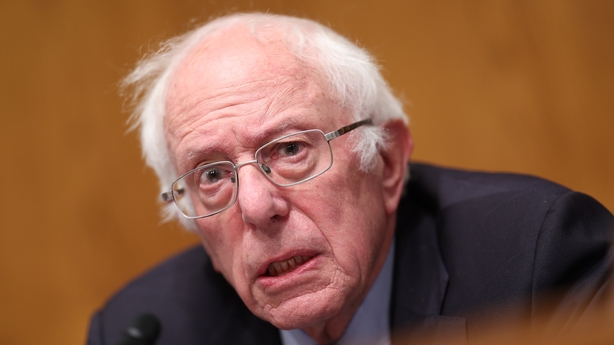
An exception was Senator Bernie Sanders, an Independent who usually votes with the Democrats. He praised the ICC, saying Mr Netanyahu had “waged an unprecedented war of destruction against the entire Palestinian people”.
Mr Sanders said the court had looked at the outcomes, not the actors, when making its decision to indict both Hamas and Israeli government leaders. Mr Sanders, who is Jewish, was recently heckled during a recent visit to University College Dublin.
However his was a lone voice.
The Republican leader of the lower chamber, Speaker of the House of Representatives Mike Johnson, said on Wednesday that the house will bring forward legislation to impose sanctions on the International Criminal Court.
Other House Republicans muttered darkly about putting the ICC’s chief prosecutor, Briton Karim Khan, back in his place. The fact that the US is not a party to the ICC makes any such sanctioning a much weaker proposition than usual.
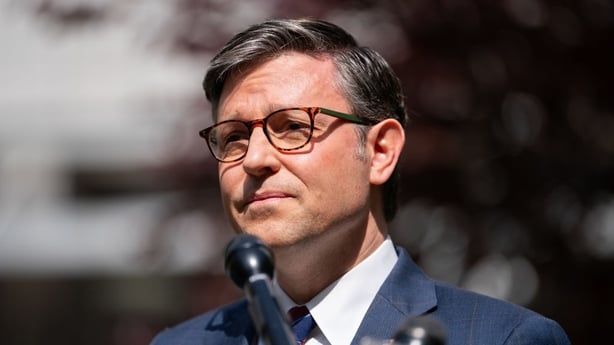
But in the toxic world of congressional politics, there is also a party-political edge to the plan: numerous Democrats believe it is being done chiefly with the intention of trying to damage the Democrats and Mr Biden ahead of November’s elections.
By driving a wedge into an issue that does indeed divide Democrats – the President’s Israel/Gaza policy – the Republicans are either politically savvy or playing party politics with diplomatic interests, but this depends on your outlook.
Another wedge was driven into the Democrats on Thursday evening, when Mr Johnson said he was planning to invite Mr Netanyahu to address a joint sitting of the Houses of Congress.
How are the Democrats to respond? Provide a massive platform for a foreign leader whose conduct of the war in Gaza has appalled many of their voters and is threatening Mr Biden’s chances of re-election? Or try to block an appearance by the leader of a key US ally at a time of war and amid a threat to his state’s existence – an existence the Mr Biden once again pledged to protect earlier this week.
Several Democrats have opposed the idea, including former House speaker Nancy Pelosi, who was also heckled by pro-Palestinian protestors on a recent visit to UCD.
But Mr Schumer – a key Biden ally – appears to be ready to agree to a joint invitation.
Amid such drama, high diplomacy and low politics, is it any wonder Ireland’s declaration of intent to recognise a Palestinian state navigated the stormy waters of America’s Middle Eastern policy this week without much remark?

